Infant Education
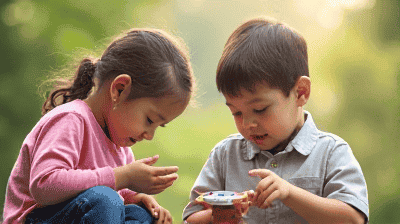
Emotional Intelligence in Early Childhood: Cultivating Empathy and Understanding
Emotional intelligence is a critical skill that affects various aspects of a child's development, including their social interactions, academic performance, and overall well-being. Understanding and managing emotions, as well as the ability to empathize with others, are foundational elements of emotional intelligence. Cultivating these skills in early childhood sets the stage for successful relationships and emotional health throughout life. This article explores the importance of emotional intelligence in
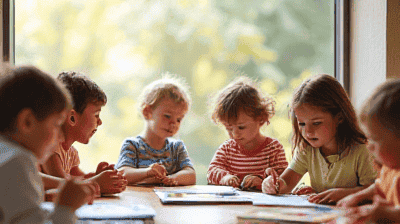
Addressing Learning Differences: Strategies for Inclusive Early Childhood Education
In today's diverse classrooms, addressing learning differences is more important than ever. Early childhood education sets the foundation for lifelong learning, and ensuring that all children, regardless of their unique needs, can thrive in this environment is essential. Developing inclusive practices in early education not only supports children with learning differences but also enriches the learning experience for all students. This article will explore the significance of inclusivity in early childhood
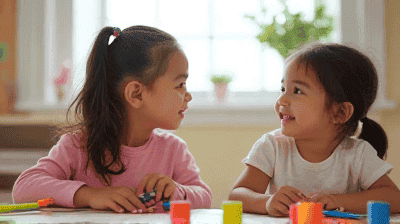
The Science of Early Learning: Understanding Brain Development in Young Children
Early childhood is a remarkable time of growth and development, particularly in the realm of brain development. The first few years of a child’s life are crucial for laying the foundation for future learning, behavior, and health. Understanding the science behind brain development during these formative years can help parents, educators, and caregivers create enriching environments that promote optimal growth. This article will explore the key principles of early brain development, the impact of various fac
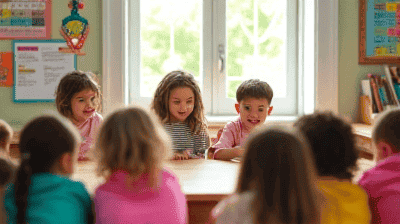
Creating a Positive Classroom Environment: Tips for Early Childhood Educators
A positive classroom environment is a cornerstone of effective early childhood education. It serves not only as a space for learning but also as a sanctuary where young children feel safe, valued, and motivated. Early experiences in a nurturing environment can have a profound impact on a child's emotional, social, and cognitive development. This article will explore key strategies and tips that early childhood educators can implement to create a positive classroom environment conducive to growth and learnin

The Importance of Play: How Play-Based Learning Shapes Early Childhood Development
Early childhood education is a critical period that lays the foundation for a child’s future learning and development. Within this realm, play-based learning has emerged as a fundamental approach that significantly impacts children's growth. This article explores the vital role of play in early childhood education, examining how it shapes cognitive, social, emotional, and physical development.
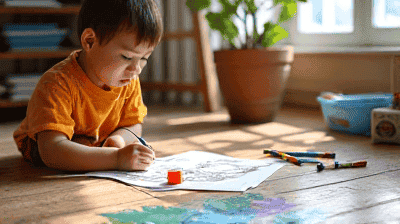
Creative Learning: Incorporating Art and Music in Early Childhood Education
Early childhood education is an essential foundation for lifelong learning, and integrating creative activities such as art and music can greatly enhance the educational experience. These activities not only promote cognitive and emotional development but also encourage critical thinking and problem-solving skills. This article will delve into the benefits of incorporating art and music into early childhood education and provide practical strategies for educators and parents to foster creativity in their ch

Mindfulness in the Classroom: Techniques for Teaching Young Children to Focus
In today’s fast-paced world, the need for mindfulness in education has become increasingly relevant. Young children face various distractions in their learning environments, and teaching them mindfulness skills can significantly enhance their ability to focus, engage, and thrive in the classroom. This article explores the concept of mindfulness, its importance in early childhood education, and practical techniques educators can use to foster mindfulness among young learners.
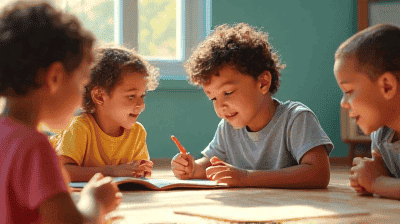
Storytelling Techniques: Engaging Young Children Through Narrative
Storytelling is an ancient art that transcends cultures and generations, serving as an essential vehicle for communication, cultural preservation, and learning. When it comes to early childhood education, storytelling plays a pivotal role in engaging young children and fostering their love for language, imagination, and critical thinking. This article explores effective storytelling techniques that educators and parents can employ to captivate young audiences, enhance literacy skills, and encourage creativi
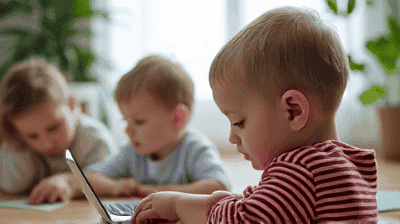
Digital Literacy for Preschoolers: Navigating Technology in a Healthy Way
In today’s digital age, technology is an integral part of daily life. For preschoolers, navigating technology is essential for developing the skills they will need in a rapidly evolving world. However, giving young children access to technology raises important questions about how to ensure that their engagement is healthy, educational, and safe. This article explores the concept of digital literacy for preschoolers, the importance of technology in early childhood education, and effective strategies for nav
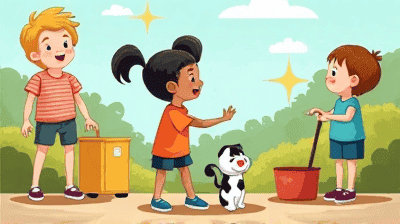
Fostering Independence: Encouraging Self-Help Skills in Preschoolers
Independence is a crucial aspect of early childhood development. As preschoolers grow, it is essential for them to develop self-help skills that empower them to perform daily tasks independently. Encouraging these skills not only promotes self-confidence but also fosters a sense of responsibility and belonging. This article explores the importance of self-help skills, the foundational areas that need attention, and practical strategies that educators and parents can implement to foster independence in presc
